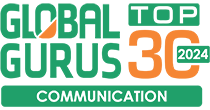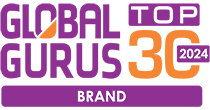Getting Your Credit in Order: Where to Cut, Where to Save & How to Break Free from Debt
May 23, 2021
Debt is an inevitable part of adult life to some degree. Even if you’re earning a decent living, you’ll still have to take out loans to pay for essentials like your home and car. Mortgages aren’t often considered debt to people, but they are. Debt, however, differs from person to person, and credit cards are one of the greatest sources of financial stress everyone can agree on.
Although credit cards aren’t inherently bad, they do come with some high risks and negative consequences. Even failing to simply read the fine print before opening a line of credit with a certain company can cost you hundreds of dollars a year in expensive fees. This guide will help you get a handle on your credit. Where do you need to make changes, and how can you optimize your spending to reap the maximum benefit from your cards? We’ll also explore ways you can save money, plan for the future and avoid common credit pitfalls.
Do You Need a Credit Card?
No, you don’t absolutely need a credit card to live. But you will find that having a credit card is the only way to raise your credit score. Your score is taken into account by lenders when you apply to do things like buy a car, get an apartment for rent in Buffalo, or apply for a mortgage. Although you can still get approved with no credit history, you will have to put more of your own cash down as a form of security.
Your credit report demonstrates your reliability to lenders; it keeps a running log of your outstanding lines of credit, your debt-to-credit ratio and payment history. Credit scores are a number between 300 and 850 that represents your behavior as a consumer. The FICO scoring system is the standard for measuring and reporting credit scores. A poor score ranges from 300 to 579; a fair score is 580 to 669; a good score falls between 690 to 739; a very good score is between 740 to 799, and excellent credit is any score between 800 and 850.
How to Check Your Credit Score
Every consumer is eligible for one annual report from the three major credit reporting bureaus in the United States: Equifax, Experian and TransUnion. The official website to request your reports is annualcreditreport.com. You can also request a report by phone using a toll-free number, 1-877-322-8228. You can choose to order all three reports at once or space them out throughout the year. It’s a good idea to order one report first and check for any mistakes or errors. Then, you can contact the lenders and work to resolve any problems. Request another free report within four to six months and check how it’s changed.
Through 2026, you can get up to six free credit reports annually through Equifax. This is in addition to the free one you are eligible for by default as well as the ones from Experian and TransUnion. With this much opportunity, you can easily stay on top of your report and know what’s impacting your score and areas you need to improve.
Be Mindful of How You Use Your Cards
A big mistake people make when they get approved for a card is taking out more than they actually have. Credit is designed to help you pay for things you might not be able to afford right now out of your own pocket, but it isn’t free money. In addition to regular fees, you also have to pay interest on whatever you spend. If a month goes by and you’re not able to repay what you spent 20 to 30 days prior, you can find yourself quickly racking up hundreds of dollars in interest and late fees.
While you don’t have to pay your balance off in full each month, you do have to make the minimum payment requirement in order to avoid penalties. Late payments negatively impact your score and show up in your history. It can linger on a report for seven years. To use a credit card wisely, make a couple of standard purchases each month that you can pay back no problem by the time your bill comes. Things like groceries, gas and even student loan payments can be paid using your card and returned from your own pocket with ease. Routinely using your card helps improve your score and keeps your credit utilization ratio in good standing. If your credit score is less than ideal, consider looking into options like a credit card for bad credit designed specifically to help improve your financial standing. These cards can provide a stepping stone towards building credit by offering manageable terms and conditions that cater to individuals looking to begin or repair their credit journey.
Think About Your Future Investments
What you’re paying into now will have an impact on your financial stability in the future. Have you already started saving up for retirement? Are you planning to pay off your home, sell or continue renting? Will your car still be valuable by the time you pay it off, or would it be better to sell and pay off the loan with the profit?
Insurance policies can also become valuable investment assets, but you have to think ahead. Take life insurance. People in their 30s and 40s can take out life insurance now and pay into it so they can cash it out later. This can fund their retirement and serve as a nice financial cushion later in life. You can look into this free guide on cashing out your policy to figure out how much you could earn in the future.
Choose Your Cards Wisely
There are plenty of great cards out there that can not only help you raise your score but also earn exclusive perks. Opt for cards that reward good habits; just make sure that you don’t get swayed by a tempting offer only to wind up trapped in a spending cycle. If your interest exceeds your purchases or benefits, then you don’t benefit at all. Foresight is key here.
You should use a budgeting app or even a good old pencil and notebook to keep track of your spending. How much do you owe, and how much do you intend to save? Put savings before wants, always. You might be eager to eat out and go shopping, but disposable income is really anything but. Rather than literally throw money away or rely on cards to replace what you don’t have, think about what you’re earning whenever you spend. This paradoxical approach can actually stop you from impulse spends and low-level buys that really aren’t worth their cost in the long run.

























